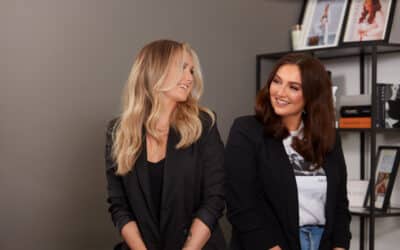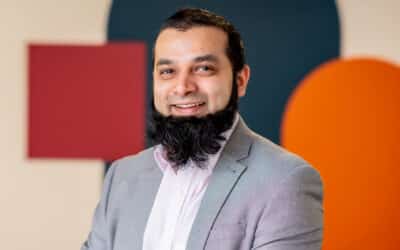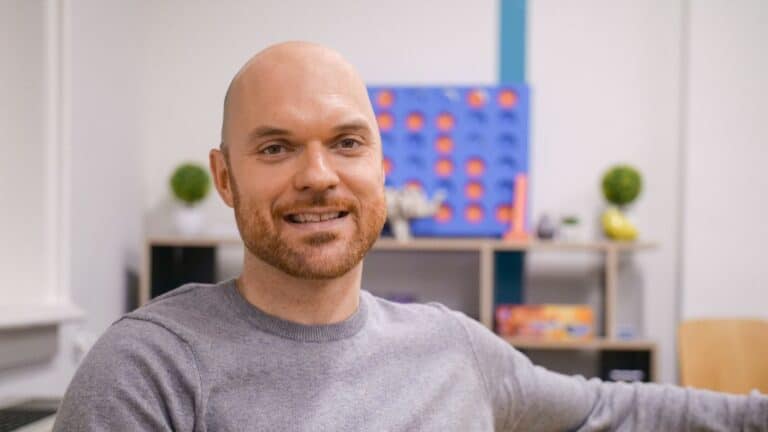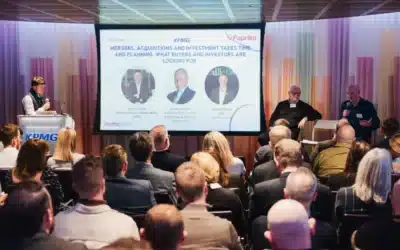Ben Davies is the founder of Vypr, a Manchester-based product intelligence platform that’s designed to give clients real-time data on consumer purchase intent.
He began his career in the food and drink industry as a buyer for Sainsbury’s, before moving to a similar role at the Co-op.
From there, he began his entrepreneurial journey and has since founded five businesses in total across both the technology and FMCG sectors.
Davies set up Vypr, which celebrating its 10th anniversary last year, to drive better outcomes in the product innovation process through predictive consumer insight, combining his experience in the FMCG sector with his love of technology.
From his biggest challenges to the things he loves most about his job, Davies shares his career journey and words of advice…
How did you first get into your industry?
I took a typical scattered approach to life post university, applying for probably 15 graduate schemes with blue chip corporates across the UK. One of them was Sainsbury’s, and I was lucky enough to get accepted on their graduate scheme as a buyer.
I was immediately put into a junior buying role, working in the chilled food category, buying products such as quiche and steak pies! I stayed at Sainsbury’s for around 5 years, buying in lots of different categories. It taught me a huge amount working for a big business when I was young, and I’d highly recommend it to anyone starting out on their career. The exposure to managing process, decision-making, investment, collaboration and communication can’t be replicated elsewhere.
What do you love about your job?
I’m so proud to be working alongside brilliant people who are passionate about a business I founded. It’s an amazing thing to experience on a day-to-day basis.
This summer, we’re celebrating the company’s tenth birthday, with our team and customer growth and having really accelerated in the past couple of years. I love the fact that people seem to really value and enjoy working at Vypr, and they see such a big future for the business.
From the perspective of my role, I love influencing the wider industry on best practice from an insight and innovation perspective, and talking or presenting to clients or audiences on how they can drive improvements in what they do.
Who – or what – has inspired you in your career?
When I made the shift from working in the food and drink industry to starting a technology business, I was hugely inspired by many of the US entrepreneurs doing amazing disruptive things in their respective parts of the technology sector. It’s very cliched, but entrepreneurs like Jack Dorsey (Twitter, Square), Reid Hoffman (LinkedIn), Marc Benioff (Salesforce) did so much to show how quickly and ambitiously you could scale enterprise startups and change entire industries for the better.
What are the biggest challenges about your job?
Figuring out which commercial channel and partnership opportunities offer the quickest and most sustainable route to growth is an ongoing, yet interesting, challenge. As a rapidly scaling, multi country business, working out where not to spend your time, is the best thing you can do. We don’t have infinite resource, so the application of where the team focuses their time is crucial.
What skills have been the most crucial to you succeeding in your career so far?
In my view, the number one skill or characteristic to become a successful entrepreneur is resilience. In the early stages of a business, you’ll take so many knock backs that you need resilience just to keep moving forwards and maintain belief. In terms of something that can be developed, I’m a big believer in knowing the rules of the market you play in well enough so that you can break them….
What was your first salary and what could someone getting into the industry expect to earn nowadays?
My first full time role after university was teaching English as a foreign language, when I lived in France for a few months after graduating. So, as you can probably guess, it wasn’t a great deal… The tech industry is so big and broad, with so many potential different roles, that it’s impossible to say what someone could expect without knowing what discipline they wanted to get into.
What education or training would be most useful for someone looking to follow your career path?
For someone looking to be an entrepreneur they need myriad skills, but the key one is selling. Whilst you don’t need to be the person selling the product for the duration of the startup, in the early years you constantly need to sell. You sell a vision to prospective investors, you paint a picture for prospective hires, you sell to early evangelists, you sell decisions internally. I had a stint straight after university working in a cold calling sales team. I hated it for the first few weeks but grew into it and boy did it teach me a lot in terms of pitching and general communication.
What advice would you have for someone looking to follow your path?
To start a business in a B2B environment you need to rack up significant experience in your target industry so you can begin to understand the pain points and opportunities that are ripe for new solutions. Without that insight, your chances of success are so much lower.
If you’d like to take part in future editions of How I Became, or some of our other regular features, please email [email protected]















